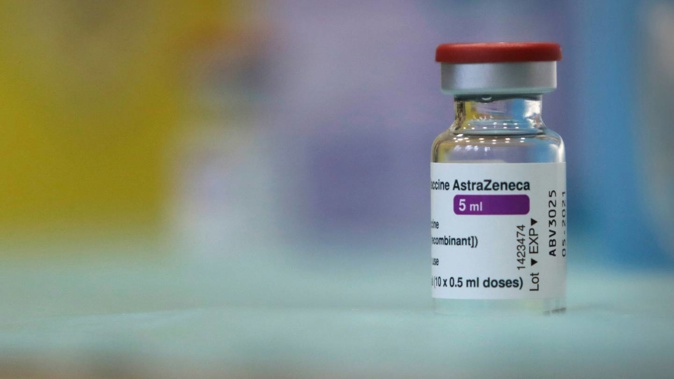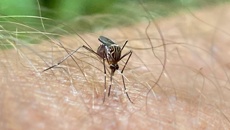
South Africa will suspend use of the same Covid-19 vaccine that New Zealand has pre-purchased millions of doses of, over concerns it may not be fully protective against a new variant.
The move came on the back of a new analysis, to be released before peer-review, that found the Oxford-AstraZeneca's ChAdOx1 vaccine provided only minimal protection against mild-moderate Covid-19 infection from the B.1.351 (South Africa) coronavirus variant.
The variant, first identified in South Africa in mid-November, has since been confirmed in cases in New Zealand's borders.
The analysis, carried out by the Wits Vaccines and Infectious Diseases Analytics (VIDA) Research Unit which runs the Oxford Covid-19 vaccine trial in South Africa, involved about 2000 volunteers, with a median age of 31.
The tests did not focus on protection against moderate-severe disease, hospitalisation or death, as the vaccine's target population was at low risk.
The results showed that, while the vaccine had high efficacy against the original coronavirus non-B.1.351 variants in South Africa, its effects on the new strain was substantially reduced.
South Africa had planned to deliver the shot to healthcare workers soon, having received about one million doses, but would now instead offer other vaccines by Johnson & Johnson and Pfizer.
Work was already under way at the University of Oxford to produce a second generation of the vaccine, which has been adapted to target variants with mutations similar to B.1.351.
The VIDA trial's chief investigator, Professor Shabir Madhi, said the findings forced scientists to "recalibrate" thinking about how to approach the virus - and shift the focus from herd immunity to the protection of all at-risk people.
Professor Andrew Pollard, the Oxford vaccine trial's chief investigator, said the study confirmed that the coronavirus would find ways to continue to spread in vaccinated populations.
"But, taken with the promising results from other studies in South Africa, such as those using a similar viral vector, vaccines may continue to ease the toll on health care systems by preventing severe disease."
Oxford vaccinologist Professor Sarah Gilbert said her colleagues were working with AstraZeneca to optimise the pipeline required for a strain change should one become necessary.
"This is the same issue that is faced by all of the vaccine developers, and we will continue to monitor the emergence of new variants that arise in readiness for a future strain change."
It's unclear what the development means for New Zealand's vaccine roll-out - and the Ministry of Health has been contacted for comment.
Under its pre-purchase agreement, New Zealand has signed up to receive about 7.6 million doses of the Oxford-AstraZeneca vaccine - enough for 3.8 million people.
On Friday, it was reported New Zealand could be sent nearly 250,000 doses of the vaccine before July, as part of its membership in the global Covax alliance.
University of Auckland vaccinologist Associate Professor Helen Petousis-Harris said it would be "disappointing" if the vaccine didn't work as well on the variant, as reported, but she cautioned there was only limited data available.
"I think we just need to let this play out, and wait until we've seen all of the data," she said.
"But it's encouraging that [AstraZeneca] is able to go back and adjust the formulation."
Otago University and ESR virologist Dr Jemma Geoghegan said it would be important to see how the vaccine worked in a broader context, given the initial trial focused on mostly younger people without severe infection.
"But this new South African variant does have some mutations that work to escape or evade the vaccine, which is concerning," she said.
"So it's good that these studies are being done in real time."
Geoghegan said it remained to be seen whether the South African variant was going to become dominant worldwide.
"It looks at the moment that the B.1.1.7 variant, which is the most frequent in the UK, is increasing in frequency everywhere at the moment."
The latest development pointed to one of the "silver linings" New Zealand could draw from being at the back of the vaccine queue, she said, giving the country more time to see how shots worked in other countries.
New Zealand has pre-purchased three other vaccines, from Pfizer and BioNTech; Janssen Pharmaceutica; and Novavax.
The first purchase agreement was for 1.5 million vaccines from Pfizer and BioNTech, which MedSafe granted provisional approval for last week.
This is enough vaccines for 750,000 people and each person will need two doses of this vaccination, about a month apart.
An in-principle agreement has been signed with Janssen Pharmaceutica to purchase up to 5 million vaccines - likely to be a single dose.
In December, the Government signed a further agreement with Novavax to purchase 10.72 million doses of its vaccines - enough for two doses for 5.36 million people - but this isn't expected until later this year.
Take your Radio, Podcasts and Music with you









